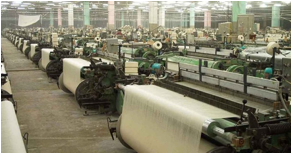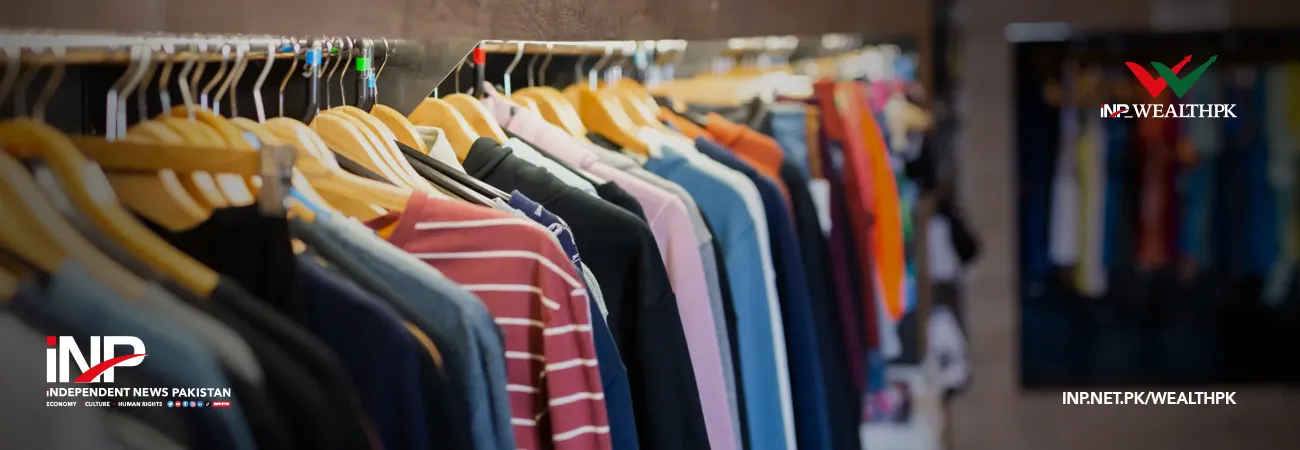INP-WealthPk
Ahmed Khan Malik
Karachi’s garment sector is pressing for stronger government incentives and policy support to remain competitive in the fiercely contested global market. Industry leaders warned that without immediate measures, Pakistan risks losing ground to regional competitors.

Karachi contributes a major share of Pakistan’s textile exports, especially ready-made garments, knitwear, and value-added apparel. The sector provides employment to hundreds of thousands of workers, many of them women, and is considered one of the most vital drivers of the city’s economy.
In the global textile trade, Pakistan faces stiff competition. Bangladesh has already secured preferential trade access to the European Union under its Generalised System of Preferences Plus (GSP+) scheme and has significantly lower labor costs. Other competitors are not only offering competitive pricing but also rapidly upgrading their production technologies to meet global fashion brands’ requirements for speed, sustainability, and compliance.
Although the United States has imposed relatively low tariffs on Pakistani products, giving the country some competitive edge, the benefits are offset by the high cost of energy and finance. Moreover, the US is not the only market for Pakistan. The European Union, Africa, and Asian markets are also key destinations for the garment sector, where Pakistan faces disadvantages due to its higher cost of production.
“Pakistan’s garment sector has the potential to double exports in the next five years, but without an enabling environment, we cannot match the prices and delivery schedules of our rivals,” Jawed Bilwani, a leading Karachi-based exporter and industry representative, told Wealth Pakistan. He noted that higher utility tariffs, inconsistent energy supply, and a lack of tax refunds were eroding exporters’ profitability.
He said the high cost of energy was one of the most pressing concerns raised by garment manufacturers in Karachi. Gas shortages, particularly during winter months, disrupt production schedules and increase reliance on expensive alternatives. Electricity tariffs, among the highest in the region, further inflate the cost of doing business.
Junaid Kapida, a garment industrialist in Korangi, argued that these issues made it difficult to honor timely delivery commitments, a crucial requirement in the global apparel supply chain. Moreover, access to raw materials has become a challenge. While Pakistan grows cotton, fluctuating yields and quality concerns have forced import dependence on finer cotton varieties. Import restrictions and duties on raw materials often push up costs, further diminishing competitiveness.
He pointed out that another significant hurdle was compliance with international sustainability standards. Leading brands and retailers in Europe and North America now demand eco-friendly production, waste reduction, and ethical labor practices. While many Karachi-based exporters are willing to invest in greener technologies, they argued that without low-interest financing schemes and government-backed incentives, small and medium-sized units could not afford the transition.
To regain competitiveness, Junaid called for a comprehensive incentive package, including regionally competitive energy tariffs, timely release of tax refunds, easier access to credit, and support for technology upgradation. He also emphasized the need for the government to negotiate favorable trade agreements with the European Union, the United States, and other emerging markets.
“The government must realize that garments are the most value-added segment of the textile chain,” said Zeeshan Taqi, member of the Pakistan Hosiery Manufacturers Association. “Every dollar earned through garment exports brings more jobs and more foreign exchange than raw cotton or yarn. If we want to expand exports and stabilize the economy, incentives for this sector are essential,” he added.
Credit: INP-WealthPk









